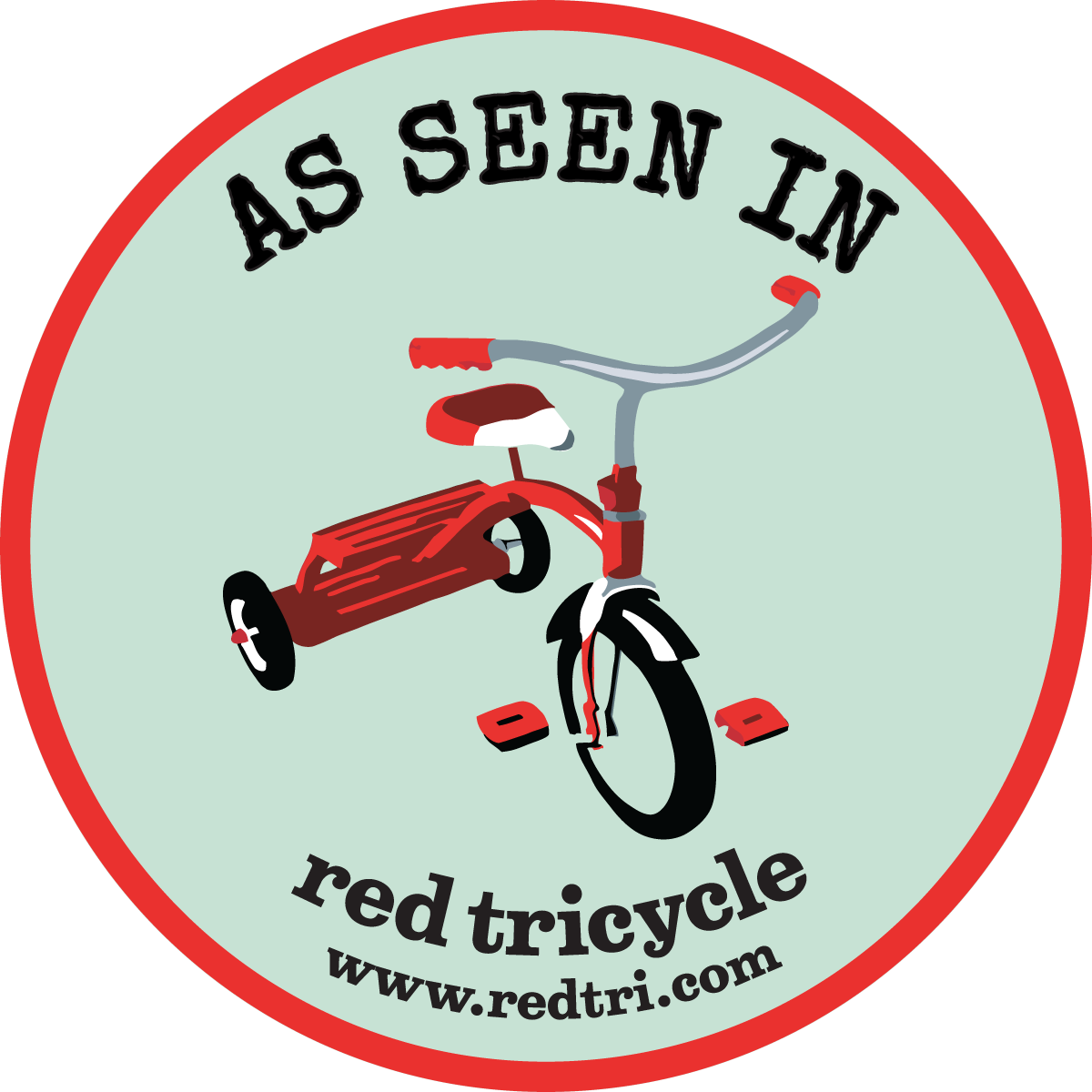Even better, how not to sound like you’re training a dog when you’re addressing your kids. That’s right, I would venture to guess we are all guilty of over-praising our kids. Certainly I’m not the only one and sometimes I can’t stand it when I hear unnecessary praise coming out of my mouth but it’s a habit, or I’m tired, and I can’t think of anything more original to say. Turns out, a high five would be sufficient.
I recently read the piece in the Washington Post about how boosting self-esteem through praise is back-firing and we are ending up with children who are afraid to take risks or tackle challenges for fear of not coming out on top. Michael Alison Chandler’s piece really struck a chord with me because as I raise my 3-and-6-year-old, I want them to be resourceful, to learn from mistakes, to have courage and take risks. I think taking the safe road is boring. But I also hear myself praising art work that frankly, doesn’t always warrant it. It’s a vicious cycle. So when local parenting coach Meghan Leahy agreed to answer some of my questions, I jumped at the chance. After reading Chandler’s piece, what it left me wishing for was some instruction and guidance on how to raise confident kids who aren’t “praise junkies.” So read on – Leahy’s advice is so good that I am tempted to print some of it out onto notecards and hang it around my house, to serve as reminders for those days when I am too tired to think straight.

Really...do we always need to give out trophies for everything?
WM: First, I realize the Washington Post piece is talking about school-age children and the importance of not showering them with too much empty praise – but where does this begin? As parents, are we guilty of showering too much praise on our really little ones and then it builds from there?
Schools reflect the larger culture in which they exist in (i.e., when spanking was more common, children were corporally punished in schools, etc.) So, yes, schools started the praising because parents really felt like their children wanted and needed it to succeed (academically). Schools also used scientific studies, such as the ones found in behavioral psychology, to show that rewards are more likely to repeat a behavior. The newer studies are showing, though, that rewards (praise) do not positively affect internal motivation, and in fact, the more praise that is heaped on a person (without any proof, or discussion of progress, or choice allowed on the part of the person being praised), the more that person’s productivity goes down (while the confidence stays high). This, obviously, is a bit of a disaster for students, especially when we think that these youngsters will be our workforce in the next decade or so.
WM: On some level, it’s hard for me not to wonder if this is a classic example of overly-educated parents worrying about a first-world problem? In other words – who isn’t going to praise a baby for clapping his hands or building a puzzle? Do we actually need to be conscientious of how much we praise babies and toddlers?
Merriam-Webster defines praise as 1. : to express a favorable judgment of : commend. 2. : to glorify (a god or saint) especially by the attribution of perfections.
So, babies. Babies young brains require us to talk to them (often), smile, make goo-goo sounds, and exaggerate our facial expressions. Babies reward us (ha!) with like-sounds and smiles. They learn to articulate language this way, and also, importantly, read and understand facial expressions. Literally, crucial brain growth that affects the rest of their emotional lives happens in these interactions…so, is this praise and is it bad?
No. When we look at the first definition by Merriam-Webster, as parents we are showing favorable judgment! Babies come out cute and utterly needy, and we must use the voices and faces and clapping to help their brains along. The problem comes when the babies grow quickly into toddlers, preschoolers, and school-age kids. The needs of the growing brain do not require the clapping and big expressions, but the parents have developed a nasty habit.
This is where the second definition of praise starts to become a problem. Glorifying our children, looking for perfections: “the best picture!” “the prettiest girl!” “the fastest boy on the team!” are not growing the brain to cope and recognize feelings. These statements are based on outcomes, and those outcomes are the best. There is no discussion of progress or the specific effort required to get to a good outcome. Hard work? Practice? Resilience? Not mentioned in praise. You can see praised kids because they are often searching out the adult “okay,” but may still remain apathetic about their product.
WM: This is so interesting. So here’s another question, as a parent of two young girls, I go out of my way to praise my girls for their intellectual abilities. I’m very aware of the Princess/Disney influence and feel strongly that from the beginning, I am recognizing their smarts and their resourcefulness. How does this apply to what the Post piece laid out in terms of raising praise addicts? The piece points to the importance of not praising kids for basic accomplisments because it encourages them to rest on their laurels instead of challenge themselves.
The article quotes Dweck, and she writes in “Mindset” that one of the major problems with praise is that it infers that you either “got it or you don’t!” You are either smart or not, funny or not, sporty or not, arty or not, etc. She has study after study that show these attributes can be grown in people, but when you praise, who would ever know that? Since effort is not what is noticed, children box themselves into categories that allow little to no growth, and may not even be true! And when life deals them a blow, there is nothing there to draw upon. The children have not been taught to fail and get up, or to even experience discomfort. They simply cannot believe it and would give up rather than experience the challenge and hard work.
WM: Can you give us advice on other ways to respond to children seeking praise? In other words, a teacher at my daughter’s preschool once said that when they come home with the endless art, to instead ask them what they think of the picture or how it makes them feel – thereby getting around not unncessarily praising them for something that well, isn’t necessarily praise worthy. What sort of advice do you have along those lines?
You can notice children and encourage them without using praise. Encouragement is what all forms of positive parenting use, because it means to give heart, to bring spirit or hope. Encouragement focuses on the process, it focuses on the child (not what the adult thinks and judges), and it doesn’t make something “the best!” So, here are some examples of the differences between praise and encouragement:
Your child brings home a drawing:
Praise: That is the prettiest picture I have ever seen…I love it!
Encouragement: I see you used green in this corner, tell me more about that.
Your child makes the basketball team:
Praise: I knew you could do it; you are the fastest on the team.
Encouragement: You have practiced hard for this, how does it feel to achieve this goal?
Your child gets all her math homework finished quickly and it is correct:
Praise: You are so smart in math!
Encouragement: I have noticed how quickly you worked, show me some of the problems and how you solved them!
Your child loses the track race at school, coming in 3rd:
Praise: You are still the best, you just didn’t eat enough breakfast!
Encouragement: {{hugs from Mom and Dad, and when the child is ready to talk, you can say…}} I saw someone running hard today. How do you feel it went?
You will see the obvious difference between praise and encouragement. Encouragement invites discussion, does not try to solve, and does not glorify the child. Is it okay to celebrate something wonderful child? Yes, of course. Praise is like cotton candy, as my former PEP leader and friend Chrisy would say: A little is great and quite enjoyable, but a lot of cotton candy? Rots your teeth, makes you feel sick, and doesn’t help you grow.
I would argue little of what we praise needs so much celebration.
Brushing teeth, using the toilet, showing kindness, going down a slide, setting the table, helping a little brother…these are acts that should be noticed and grown, but celebrated? Clapped over? High-squeaky voices? No. Life will not do this for them, therefore, we should encourage these acts, not praise them.
WM: Really great advice – the distinction makes so much sense. Do you think we are a culture that is raising young kids to be praise addicts? I know so many people feel that is the case with sports and every kid getting awards and trophies instead of just the few who might really be set apart. How do you break yourself and your kid from the habit of empty praise?
As parents, we have to look ourselves in the mirror and ask: “If my kid is totally average (which they probably are, the bell-curve is the bell-curve for a reason), can I get okay with that?” You might say, “Yes!” and I still may not believe you.
Our culture looks for results, acceptance, rewards, and outcomes. I get it, because it is a good way to assess if a business is successful.
But our children are not businesses. You break the cycle of praise when you realize how much you are robbing from your child when you focus on results. When you put your child into boxes (yes, even over puzzles), your child is made less than they are. Beautifully, perfectly average and brimming with potential.
If, as a parent, your children’s wins and losses weigh heavily on your soul, you need to fill your own bucket up.
Do we protect, love, support, and guide our kids? Of course. We don’t allow a three year old to run into the street to “see what happens” because the outcome could be death. We don’t hand over car keys to 16 year olds without classes and supervision, and simply “hope that works out.” No.
But if you are running scared as a parent…picking up everything, picking all of the clothes, making all of the food, “remembering” all of the homework, finding all of the library books, running to every try-out (when the kid doesn’t seem to care)…then praise is going to communicate to your child, “You are a product; I am the CEO, but I want you to somehow grow a backbone and be a great kid and adult.” It just doesn’t work.
We love our children. We want them to be happy. We want them to have what we didn’t. Or have what we did. Or have something totally different that we read in a book. Ultimately, though, our kids have to find their own happiness because it is not about us.
WM: You’ve given us so much to think about. To wrapt it up, do you have any age-appropriate guidelines? Again, unless you have ice running through your veins, there’s no way you can not react happily and with praise to babies and young toddlers performing seemingly mundance things. But how do we adjust and alter our praise as the child gets older?
Whenever what you would say sounds like how you would train a dog, stay quiet. Instead, stop talking so much. Hugs work, for all ages. Winks, high-fives, and special signs work too. When you have to talk, narrate what is happening. “I have a baby who is feeding herself! Look at those hands go!” Happy? Yes. Clapping like a fool in the face of your child? No.
When you have to speak, notice. Notice process, notice hard work, and notice the characteristics and values that make up a person who achieves something great. Notice growth. “Last week you could not reach the sink, and now you can wash your hands all by yourself. You are really growing.”
And when something great happens, do something fun! Go out and celebrate with friends and family…toast each other. Mention accomplishments and the work that went into it. Have a sundae party. Have a sleep-over. Eat dessert for dinner. HAVE FUN. Because when you stop praising and celebrate the REAL accomplishments and work, children remember that. It actually means something!
Thank you so much to Meghan for giving us such great, practical and useful advice. You can follow Meghan’s blog for more advice or learn more about what services she offers or you can catch her blogs for Discovery here. And of course, be sure to “Like” the WM Facebook page, maybe on there I will explore why I am a chocolate junkie. Will anyone praise me for that?












